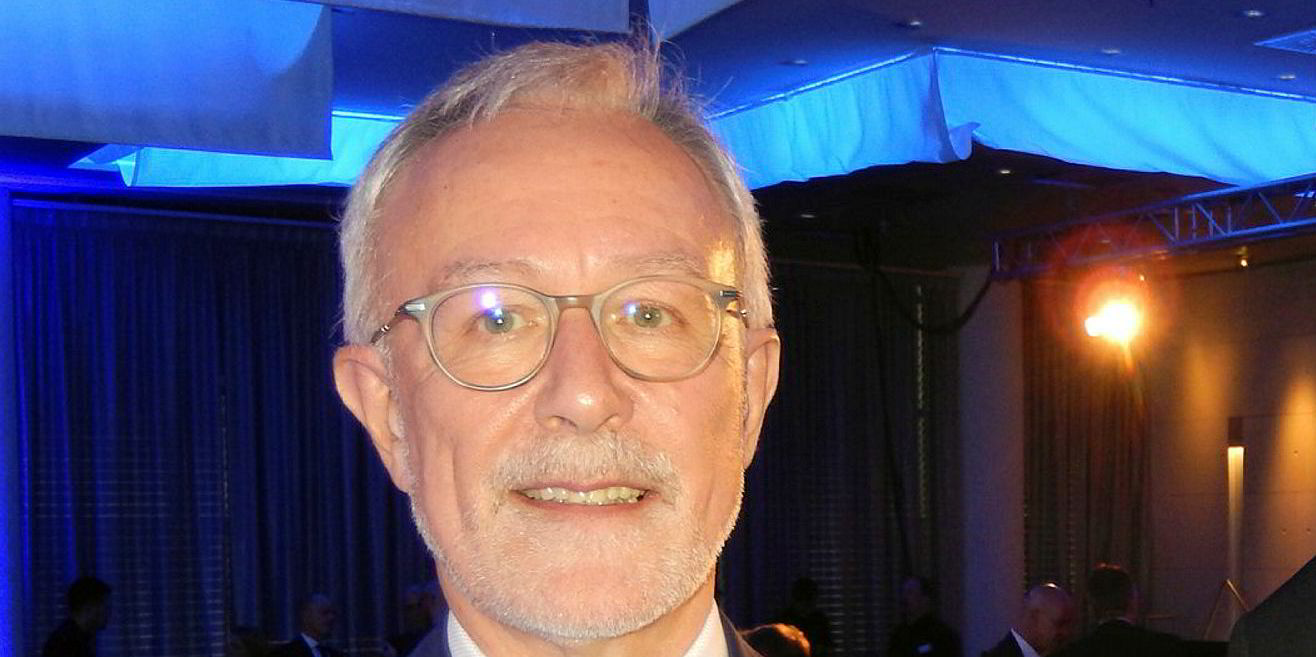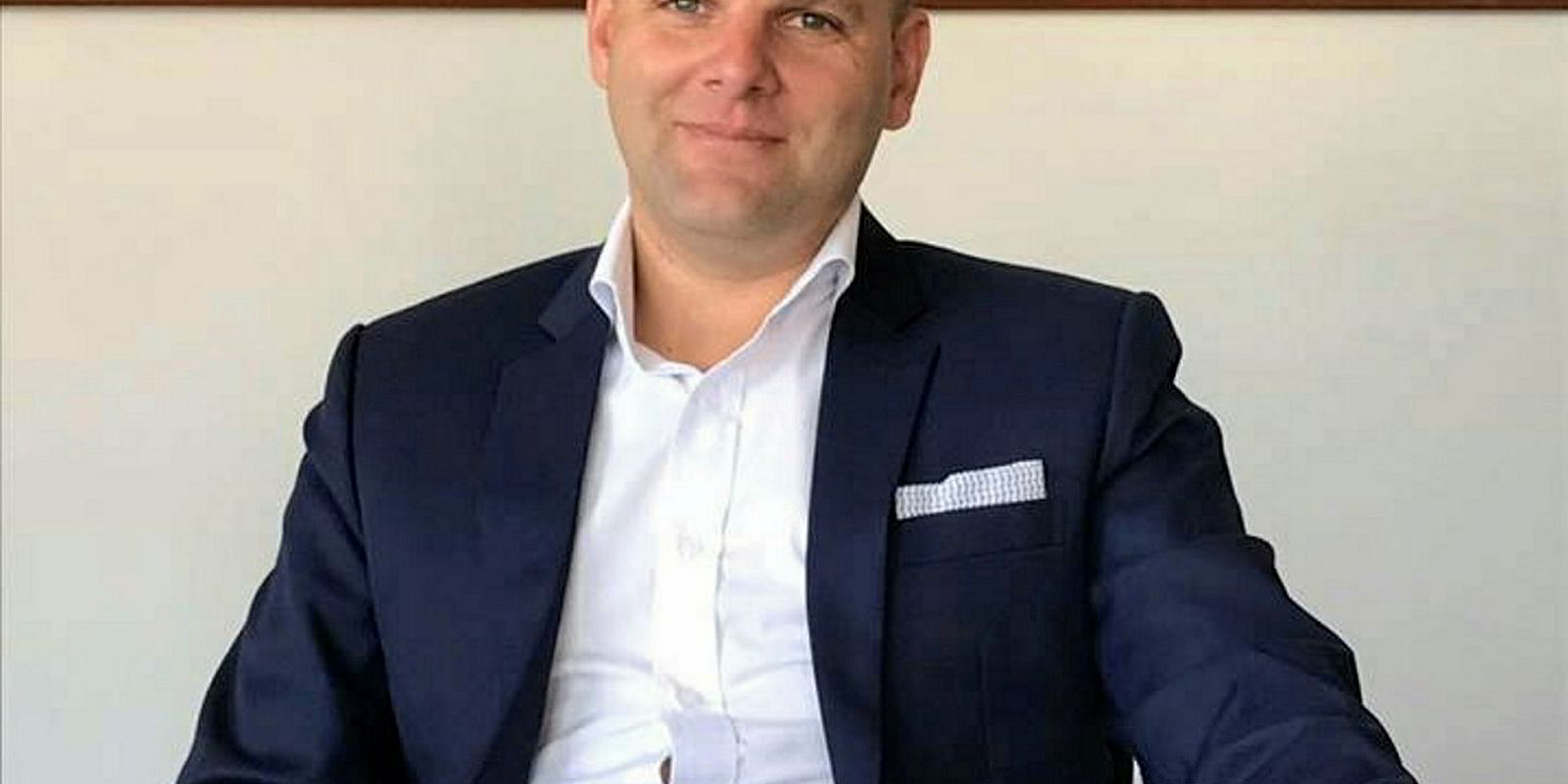Containership industry participants see a year of disruption and challenges ahead as the sector prepares for compliance with 2020 fuel rules.
Some challenges will bring opportunities for shipowners and operators, as the IMO sulphur cap brings service disruptions and ship demolition that could boost rates, as industry executives explain in TradeWinds' annual survey of outlooks for the year ahead.
But other challenges bring risk, such as facing up to the need to recover the cost of compliance and to prepare a contractual framework for the new IMO 2020 reality.
Mirco Erdtmann
Managing director, Hanseatic Unity Chartering
I think that going forward, we will see a lot of service disruptions [as a result of IMO 2020]. Disruptions are also good for liners and owners. It will help freight rates. It will help charter rates.
I think the biggest challenge is that there are no contractual wordings in place yet — neither from Bimco at this point in time, nor from the liner companies.
Now we are at a stage where you are on-and-off fixing in 2020. And we usually see that we very often agree on wordings to be mutually agreed.
That is something which we all have to address.
The market fundamentals are good. The cargo volumes are there. So our expectations for the container chartering market are quite positive.
Our prediction is that we will see soon after Chinese New Year quite large market improvements.
The fourth quarter has capped that a little bit, because we have found ourselves in a sliding market.
We are accepting flexible periods again. That’s obviously taking some momentum out of the owners hands into the charterers hands.

Anthony Firmin
Chief operating officer, Hapag-Lloyd
The most important issue for us is to recover the fuel cost [from IMO 2020]. There is no other way we or anybody else in the industry can survive otherwise.
The container industry has been fairly haphazard about recovering fuel cost.
It’s very different to airline industry where you pay for the freight and then pay for the fuel.
We’ve got 2020 pretty well covered in the container industry. The bulker and multipurpose sectors have a lot more challenges than we do
Anthony Firmin
We’re taking this as an opportunity to rework the way we charge for fuel.
We’ve come up with a very simple formula to get Marine Fuel Recovery (MFR) figure. So, customers will be paying for sea freight and the MFR as a separate amount.
This is very different to what has been going on in the past. And I don’t think we’ll be the only ones doing this.
We’ve got 2020 pretty well covered in the container industry. The bulker and multipurpose sectors have a lot more challenges than we do.
We have to ensure compliance. We believe a carriage ban is a very simple tool — you can’t carry non-compliant fuel if you don’t have a scrubber. So we believe there will be a very high level of compliance.
We also believe these new regulations will increase scrapping and will change the supply and demand.
We see quite a lot of older, mid-sized ships being scrapped, which will be a good thing for the container industry.

Sooho Kim
Chief of container business office and executive vice president, Hyundai Merchant Marine
The increasing cost burden of complying to IMO 2020 will put pressure on the container shipping market. However, it can be also a chance to adjust market capacity through invigoration of scrapping or retrofitting. In addition, there would be confusion in the market, as each line has a different strategy in preparation for IMO 2020.
The biggest challenges in 2019 would be time and cost. Firstly, it’s difficult to secure LNG infrastructure within the deadline. Secondly, vessels on which scrubber systems can be installed are limited. Therefore, using low-sulphur fuel oil can be the most preferred option in the market, but lines need to find reasonable solutions to deal with increased fuel costs.
I expect that there will be many uncertainties and changes in the coming year:
1) Regulation: The issues relating to environmental regulation including IMO 2020 will keep increasing across many countries. Moreover, shipping will face dramatic changes depending upon the result of extension of EU [European Union] block exemption rule [on liner industry competition].
2) Political uncertainty: Many political issues such as the US-China trade war, Brexit, protectionism, or populism are affecting trade-related aspects among countries.
3) Global economy: There are signs that signal a new global economic crisis, as the IMF [International Monetary Fund] has sharply downgraded its world growth forecasts. Also, fuel costs will fluctuate and uncertainties will increase.

Claus-Peter Offen
Managing owner, Offen Group
The question is whether there will be enough low-sulphur fuel? Oil majors say probably, but nobody will guarantee it.
Then you have the technical questions.
We are trading ships at the moment with heavy fuel and would probably like to do it as close as possible through to New Year’s Eve. But where will you get rid of it at night when the fireworks start?
Claus-Peter Offen
We are trading ships at the moment with heavy fuel and would probably like to do it as close as possible through to New Year’s Eve.
But where will you get rid of it at night when the fireworks start?
There may be users for it — power stations — but we don’t get alongside power stations to discharge.
With higher scrapping and fewer deliveries, the surplus of tonnage could be smaller next year.
That takes into account the off-hire period as ships are withdrawn from the second half of next year.
Ships have to go to shipyards [to be fitted with scrubbers]. If a lot of ships have 15 days less sailing in a year, it will be an impact.
This could be positive, short term, in the market.
We have political issues which are not foreseeable. But if you put all the factors together, there is a chance the market will be better.

Svein Steimler
President and chief executive, NYK Europe
The impact of 2020 for shipowners is always going to be financial irrespective of the solutions they come up with. It surprises me that the buck stops with the shipping industry and we end up with the bill. Nobody seems to be saying the costs should be drilled down to the customer. But the extra cost of 2020 has got to be reflected in the freight rates somehow.
NYK as a company is preparing to meet all the requirements and to ensure we are in line with the regulations come 2020. There is no point in starting to prepare on December 20 th 2019 — a responsible operator should be preparing already.
The regulations are going to help serious companies and industrially-orientated companies and take some of the speculators out of the market. I believe that the regulation will help industrial companies be there in the long run.
As for the car carrier market, Brexit will have an impact but not a major impact.
I am more concerned about the long-term movement related to electrification and automation of cars and the emergence of a new generation of young people who prefer to share rather than own.
Despite population growth, if we look at these factors in the long term, then the number of cars transported will inevitably decrease.






